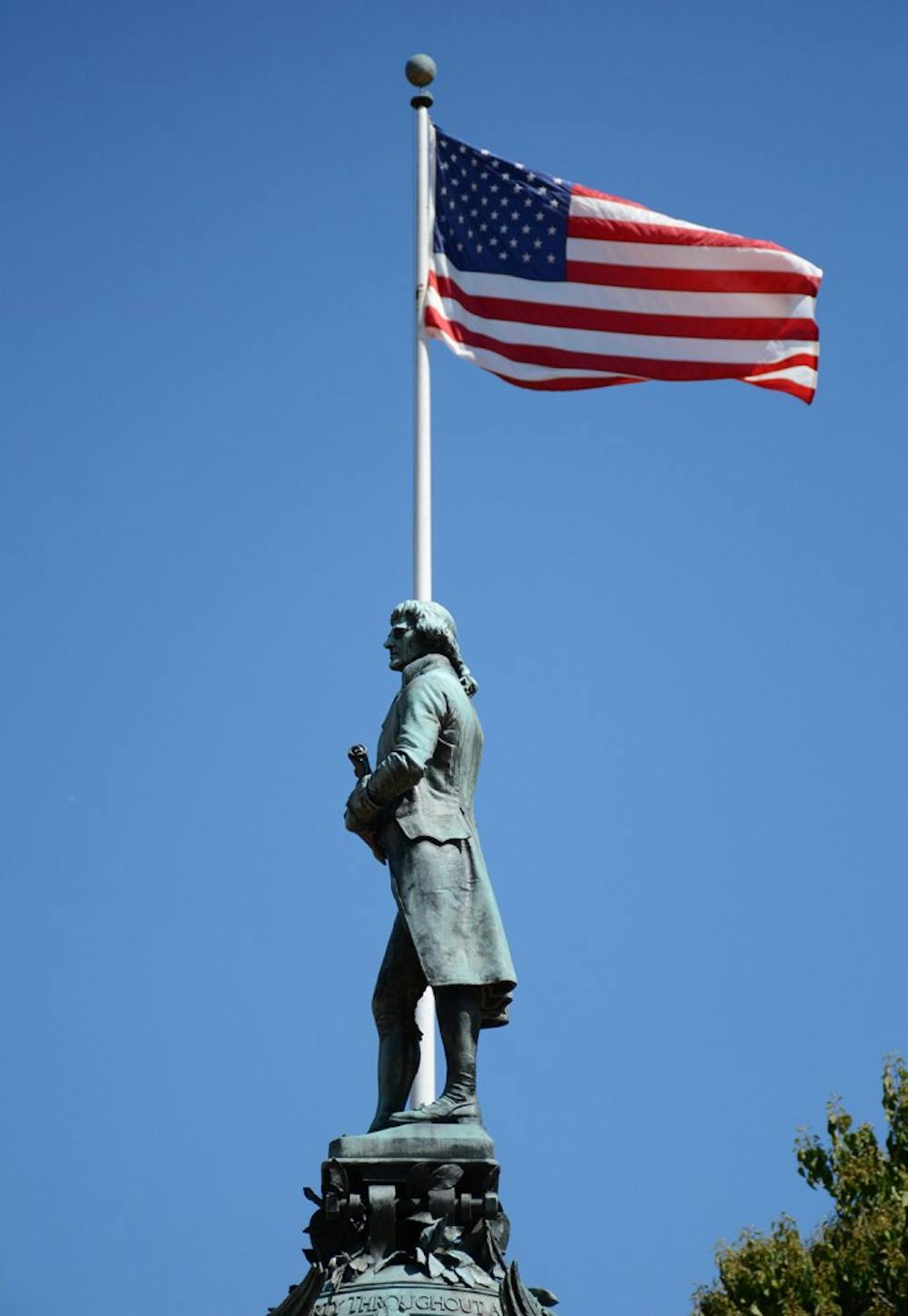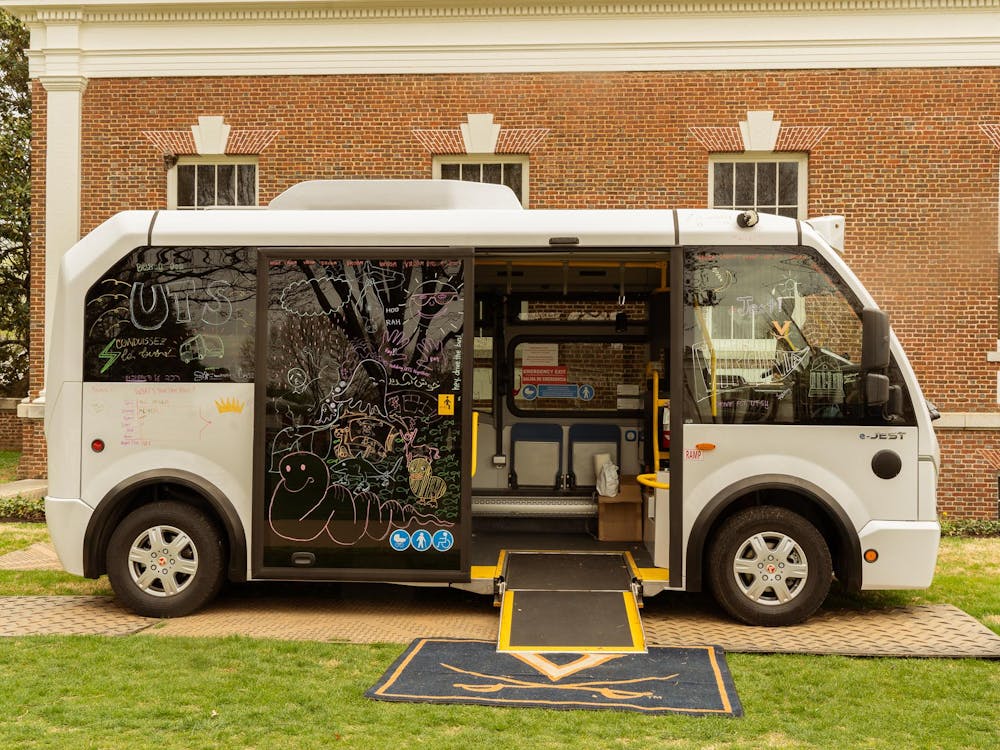This article has been updated to include President Sullivan’s response.
Several professors on Grounds collaborated to write a letter to University President Teresa Sullivan against the inclusion of a Thomas Jefferson quote in her post-election email Nov. 9.
In the email, Sullivan encouraged students to unite in the wake of contentious results, arguing that University students have the responsibility of creating the future they want for themselves.
“Thomas Jefferson wrote to a friend that University of Virginia students ‘are not of ordinary significance only: they are exactly the persons who are to succeed to the government of our country, and to rule its future enmities, its friendships and fortunes,’” Sullivan said in the email. “I encourage today’s U.Va. students to embrace that responsibility.”
Some professors from the Psychology Department — and other academic departments — did not agree with the use of this quote. Their letter to Sullivan argued that in light of Jefferson’s owning of slaves and other racist beliefs, she should refrain from quoting Jefferson in email communications.
“We would like for our administration to understand that although some members of this community may have come to this university because of Thomas Jefferson's legacy, others of us came here in spite of it,” the letter read. “For many of us, the inclusion of Jefferson quotations in these e-mails undermines the message of unity, equality and civility that you are attempting to convey.”
The letter garnered 469 signatures — from both students and professors — before being sent out via email Nov. 11. Signees included Politics Prof. Nicholas Winter, Psychology Prof. Chad Dodson, Women, Gender and Sexuality Prof. Corinne Field, College Assistant Dean Shilpa Davé, Politics Prof. Lynn Sanders and many more. Asst. Psychology Prof. Noelle Hurd drafted the letter.
“The intention of the email was to start a conversation with our administration regarding ways to be more inclusive,” Hurd said in an email statement. “In the current climate, we must seize every opportunity to communicate that this university welcomes individuals from all backgrounds.”
Politics Prof. Lawrie Balfour said she believes everyone who signed the letter, including herself, was grateful that Sullivan responded to anxiety following the election — however, many felt it was the wrong moment to turn to Jefferson, following incidents of identity-related hate speech.
“I’ve been here 15 years,” Balfour said. “Again and again, I have found that at moments when the community needs reassurance and Jefferson appears, it undoes I think the really important work that administrators and others are trying to do.”
Not all signees believe the University should move away from quoting Jefferson in all email correspondence, including Balfour.
“I think we have an opportunity to think about the contradictions that Jefferson embodied," Balfour said. "The point is not that he is never appropriate, but the point is that the move that says, he owned slaves, but he was a great man, is deeply problematic, and I think it will continue to prevent us from being the kind of inclusive, respectful community that President Sullivan and the rest of us envision.”
Hurd said she believes the University should consider ways to better express inclusion.
“I drafted the e-mail because when Jefferson was referenced in emails related to the election, it communicated to me a message of exclusion,” Hurd said.
Both Hurd and Balfour said they hope this issue encourages conversation about Jefferson’s place at the University.
“I think that Jefferson is often celebrated for his accomplishments with little or no acknowledgment of the atrocities he committed against hundreds of human beings,” Hurd said. “This is a complex issue but members of our community are intelligent and compassionate enough to be able to wrestle with this history and decide how we want to move forward as an institution that welcomes all.”
Sullivan responded to the letter Monday afternoon, affirming her support for the freedom of University community members to express their opinions.
“I fully endorse their right to speak out on issues that matter to all of us, including the University’s complicated Jeffersonian legacy,” Sullivan said in a statement. “We remain true to our values and united in our respect for one another even as we engage in vigorous debate.”
Sullivan said quoting someone recognizes “the potency of that person’s words” and that she agrees with Jefferson’s message of University students helping to lead the country.
“Quoting Jefferson (or any historical figure) does not imply an endorsement of all the social structures and beliefs of his time,” she said.
Jefferson could not have anticipated the diversity of leaders the University would produce, Sullivan said.
“All of them belong at today’s U.Va., whose founder’s most influential and most quoted words were ‘...all men are created equal,’’ she said. “Those words were inherently contradictory in an era of slavery, but because of their power, they became the fundamental expression of a more genuine equality today.”
Winter, Dodson, Anthropology Prof. Kath Weston, Psychology Profs. Joseph Allen and Beverly Adams, and Diana Wilson, president of the Memorialization of Enslaved Laborers — all letter signees — did not respond to requests for comment.
Correction: This article previously stated that student groups on Grounds collaborated to write this letter. While students and student groups signed the letter, it was drafted and circulated by University faculty.







